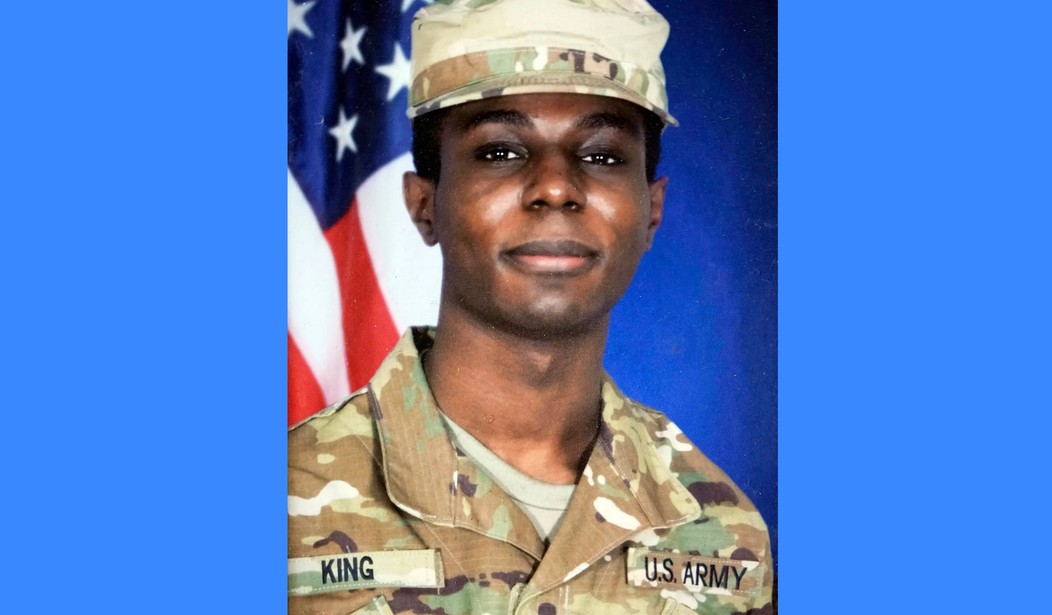North Korea announced that it would “expel” U.S. Army private Travis King, who ran across the South Korean border into North Korea during a tour of the joint security area in July. According to the Associated Press, “King was transferred to American custody in China,” a U.S. official said.
“The relevant organ of the DPRK decided to expel Travis King, a soldier of the U.S. Army who illegally intruded into the territory of the DPRK, under the law of the Republic,” KCNA said. The report said the investigation into King “has been finished.”
King made his escape prior to boarding a plane to take him back to Fort Bliss, where he was expected to be separated from the military after being charged with assault. Naturally, North Korea saw a propaganda bonanza in King’s defection.
The North Koreans claim that King “confessed that he illegally intruded into the territory of the DPRK as he harbored ill feeling against inhuman maltreatment and racial discrimination within the U.S. army and was disillusioned about the unequal U.S. society.”
In recent years, a number of American citizens who illegally entered North Korea – excluding those convicted of criminal activity there – have been freed within six months.
Private King is a reconnaissance specialist who had been in the army since January 2021 and was in South Korea as part of his rotation.
He had previously served two months in detention in South Korea on assault charges before being released on 10 July and was due to be sent home to be disciplined before he crossed into the North.
Exclusively for our VIPs: Iran and North Korea Are the Big Winners This Past Week
King’s mother says he has “so many reasons” to come home.
“I just can’t see him ever wanting to just stay in Korea when he has family in America. He has so many reasons to come home,” she said.
It wasn’t immediately clear how King might be expelled. In some prior cases, an envoy has been sent to retrieve captive Americans. That happened in 2017 when North Korea deported Otto Warmbier, an American college student who was in a coma at the time of his release and later died.
In December 1994, Bill Richardson — who up until his death earlier this month served for many presidential administrations as an unofficial diplomatic troubleshooter — traveled to North Korea in 2007 to recover the remains of servicemembers killed in the Korea War.
The U.S. government decided not to invoke POW status for King, largely because there were no hostilities and it was King’s decision to run across the border voluntarily.
There were possible mental health issues involved in King’s actions. His uncle says that King was grief-stricken over the death of his six-year-old cousin.
“When my son was on life support, and when my son passed away … Travis started [being] reckless [and] crazy when he knew my son was about to die … It seemed like he was breaking down. It affected Travis a lot. Because he couldn’t be here. He was in the Army, overseas,” King’s uncle said.
This story has been updated to include details about King’s release.










Join the conversation as a VIP Member